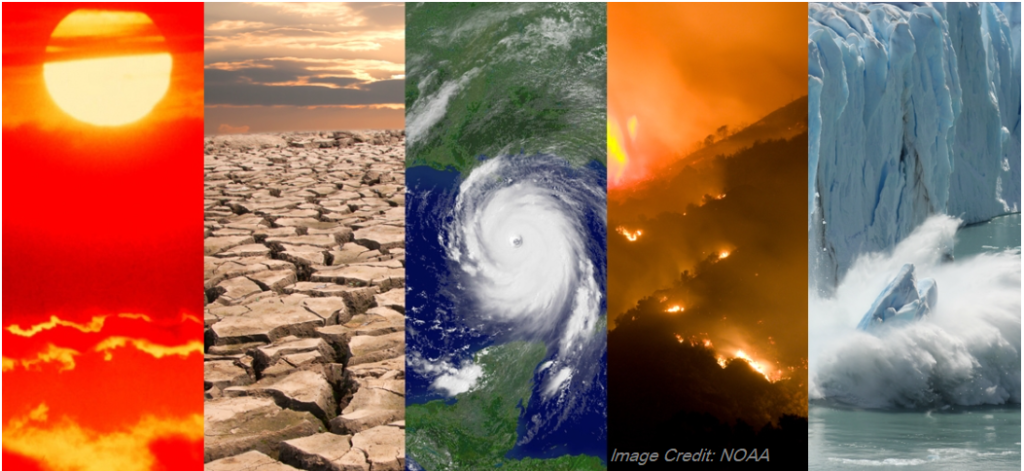Yesterday the U.N. Intergovernmental Panel on Climate Change (IPCC) released it’s most recent assessment of where we are, and where we need to go. National Public Radio has a report about the IPCC – you can listen or read it.
The report was strong and unequivocal in its main conclusion: climate change is happening faster, and humans are the cause. Each of the last 4 decades has been the warmest on record, with each new decade being warmer than the last one.
The report says there’s also still time to take action – if we drastically reduce fossil fuel use, we can avert the worst impacts of climate change. It’s clear we have to act fast with major changes to make a difference.
Right now, we can see the impacts of climate change with our own eyes: wildfires in the western US, and in Siberia, Greece, and Australia. Storms are stronger and wetter, bringing major flooding all over the world. Hurricanes and typhoons are stronger, and heatwaves and droughts are killing people.
The report states that global temperatures are the highest they have been in 100,000 years. Sea levels have risen about 8 inches around the world. With sea levels rising, a smaller storm could bring as much devastation as Hurricane Sandy or Katrina. If we take major action, we can keep sea level rise to 2-10 feet. If we don’t do much, sea levels will likely rise by at least 20 feet and could be much higher.
The report also states that we still have time – it’s not too late. The more we can reduce emissions by 2030, the better it will be for people living on earth in 2080 or beyond: our children and grandchildren. The way to do this is to make immediate, rapid, major reductions in greenhouse gases. It’s still possible to limit global warming to 1.5C, but we have to take swift strong action.
What can we do? The best thing you can do is to contact your leaders often. Elected leaders, school leaders, faith leaders – everyone. Most of what’s needed is set by policy, and much of it at the federal level. Funding for clean, renewable energy and transportation, energy efficiency, energy justice, and more. It’s part of every sector of our economy. We need to contact the president, other federal officials, and our state officials to let them know we care. If the demand is overwhelming, they will know they need to listen.
We have a major opportunity right now – to avert the worst of the climate crisis, to protect health, and to preserve a liveable world for our children and grandchildren. As Dr. Marshall Shepherd says, it needs to be integrated into non-traditional areas such as faith communities, schools, non-science agencies, and community organizations. Every institution has a role to play.
The fossil fuel industry is very wealthy, and has been part of setting public policy for decades (think of the interstate highway system of the 1950s). They are well funded and have lots of long-term contacts. We need to call or write our leaders often to let them know they need to fix this crisis.
Read/listen to the NPR report.
Look at figures and graphs from the IPCC report.
Read a statement from the IPCC about the report.
Read a 2 page summary of the key findings from the IPCC.
Link to main IPCC page where you can download an 89 page summary for policy makers, a 150 page technical summary, or the full 1300 page report.
08/10/2021





